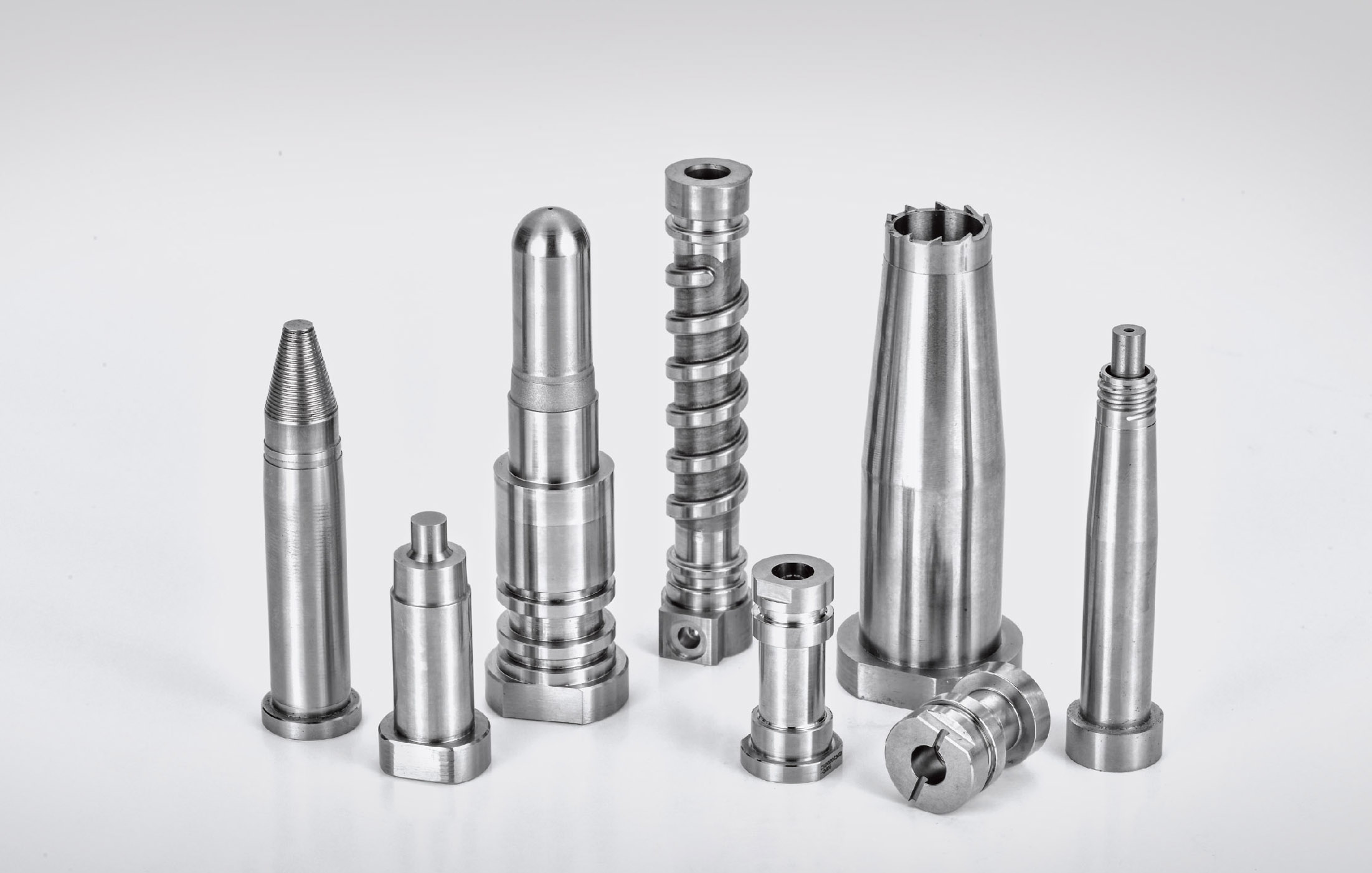Fair Shine industrial (Hong Kong) Co., Limited
To provide customers with the most comprehensive precision mold parts solutions.

2024-11-29 17:12:01
CNC Machining of medical components refers to the manufacturing process of producing high-precision medical device components using computer numerical control (CNC) technology. The process involves the use of CNC machines, which are computer-controlled tools capable of precise cutting, drilling, milling, and other machining operations. CNC Machining of medical components ensures that the components produced meet the medical industry's stringent precision, durability, and biocompatibility requirements.

Features
High Precision: CNC Machining offers exceptional accuracy, capable of achieving tolerances down to the micron level. This is critical for medical devices, as even the smallest errors can compromise patient safety and device performance.
Material Flexibility: CNC machines can process a wide range of materials, including metals such as titanium and stainless steel, as well as plastics and composites. This versatility allows for the production of components made from materials that meet the specific needs of medical applications.
Complex Geometries: The multi-axis capabilities of CNC machines produce the complex shapes and geometries often required in medical devices, such as intricate structures in surgical robots and implants.
Automation: CNC machining is highly automated, reducing the need for human intervention and minimizing human error. This increases productivity and consistency in the production process.
Scalability: CNC machines can be scaled to produce components in small or large batches, making them suitable for both prototyping and mass production.
When CNC machining medical parts, a range of precision testing instruments are used to ensure their high accuracy and quality. Commonly used equipment includes coordinate measuring machines (CMMs), optical profilers, laser measuring instruments, microscopes, surface roughness gauges, hardness testers, X-ray inspections, etc. These instruments are used to measure the size, surface smoothness, hardness, internal defects, etc. of parts to ensure that medical parts meet design standards and are safe. Through precise testing, the reliability and safety of each part in actual application are ensured.
CNC machining medical parts play a variety of functions in the medical industry:
Implant manufacturing: Producing body implants that require precise fit and biocompatibility, such as hip and knee replacements.
Surgical tool manufacturing: Manufacturing surgical instruments and tools that must be highly durable and precise, such as scalpels, scissors, and robotic arms for minimally invasive surgery.
Device component production: Manufacturing components for diagnostic and therapeutic medical devices, including MRI scanners, heart rate monitors, and blood analyzers.
Prototype development: Rapidly produce prototypes for testing and validating new medical devices.
Customized device manufacturing: Supports the production of customized devices, such as prosthetics and dental implants, to meet the needs of individual patients.
Applications
Hip and knee implants: CNC machining is used to manufacture precision implants that fit the patient's anatomy, which are made of biocompatible materials such as titanium and PEEK.
Surgical Robots: Components such as the arms, joints, and control systems in surgical robots are manufactured using CNC technology to ensure high precision and smooth operation during surgery.
Diagnostic Equipment: CNC machines produce electronic components for diagnostic equipment, including switches, buttons, and levers, as well as housings and casings.
Prosthetics: Custom prosthetics are manufactured using CNC technology, combined with 3D scanning and CAD modeling to create devices that provide optimal functionality and comfort for patients.
Dental Implants and Tools: CNC machining is widely used in dental equipment manufacturing to produce highly precise and durable instruments such as drills, scalers, probes, and forceps, as well as custom dental implants.
Laboratory Equipment: Components of laboratory equipment such as centrifuges, microscopes, incubators, and sample processors are manufactured using CNC machining to ensure accuracy and reliability of experimental results.
Proper maintenance and care of CNC machines is essential to ensure their long-term performance and accuracy. The following are key maintenance practices:
Daily Cleaning: Clean the external surfaces of the machine, including limit switches and other contact components, to remove debris and cutting fluids.
Lubrication: Regularly check and replenish lubricants to ensure smooth movement of mechanical parts and extend the life of the machine.
Coolant Management: Monitor coolant levels and replace as needed to prevent overheating and wear of cutting tools.
Tool Inspection: Regularly inspect cutting tools for wear and damage and replace as needed to maintain cutting accuracy.
Electrical Inspection: Confirm that all electrical connections are secure and warning lights and signals are functioning properly.
Preventive Maintenance: Schedule regular preventive maintenance inspections to detect and resolve potential problems before they become serious.

Fair Shine industrial (Hong Kong) Co., Limited
To provide customers with the most comprehensive precision mold parts solutions.
+86 189 2682 6341
Block 1, No. 12, Wusong 4th Street, Yuwu Industrial Zone, Dongcheng District, Dongguan, Guangdong, China
Copyright © 2025 Dongguan Huixiang Mold Technology Co., Ltd all rights reservrd.
Technical support: HuaShang